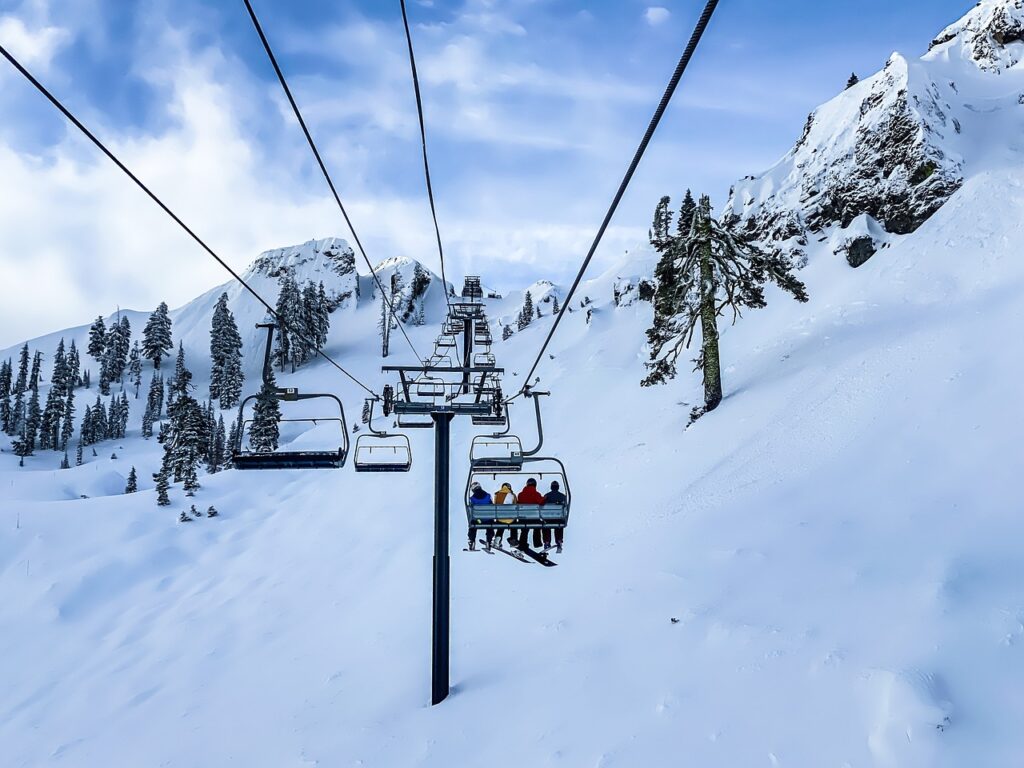No products in the cart.
Fun Facts
The Transformative Power of Skiing: Strengthen Your Body and Mind
 The Transformative Power of Skiing: Strengthen Your Body and Mind
The Transformative Power of Skiing: Strengthen Your Body and Mind
Strengthening the Heart and Lungs
Skiing is a cardiovascular workout disguised as winter fun. Whether you’re slicing through groomed trails or navigating backcountry terrain, skiing demands endurance.
Building Strength and Stability
A day on the slopes is a full-body workout. Skiing engages nearly every major muscle group, with a particular focus on the core and lower body. The constant need to balance on skis activates stabilizing muscles in the abdomen, lower back, and hips, building strength and coordination.
The repetitive bending and straightening of knees during turns and descents strengthen quadriceps, hamstrings, and glutes.
For the upper body, using poles to propel forward or maintain rhythm activates muscles in the shoulders, arms, and chest.
Burning Calories in a Cold Wonderland
Skiing offers a fun and effective way to burn calories. Depending on the intensity, a skier can torch anywhere between 300 and 600 calories per hour. The cold environment further amplifies calorie burn, as the body expends additional energy to maintain warmth.
Unlike monotonous gym routines, skiing’s dynamic nature keeps participants mentally engaged while their bodies work hard.
Enhancing Mental Health and Reducing Stress
Skiing doesn’t just challenge the body; it nourishes the mind. Immersion in nature, coupled with the rhythmic flow of skiing, creates a meditative experience that melts away stress.
Skiing also triggers the release of endorphins—natural mood boosters that reduce anxiety and enhance overall well-being. The sense of accomplishment after mastering a challenging run or simply enjoying a day outdoors fosters feelings of confidence and joy. Furthermore, the social aspect of skiing—whether bonding with friends on the lift or meeting fellow enthusiasts on the slopes—encourages human connection, another critical factor in mental health.
Improving Balance and Coordination
Mastering the art of skiing requires balance and precision. Every twist, turn, and adjustment trains the body to maintain equilibrium in constantly shifting conditions. This improved balance translates to better posture, enhanced proprioception (awareness of body position), and greater overall stability.
Coordination also gets a significant boost. Skiing demands simultaneous control of various body parts, such as steering with your legs while managing poles and maintaining core stability. This multi-tasking hones neuromuscular connections, improving coordination both on and off the slopes.
Fostering a Love for the Outdoors
Skiing fosters a profound connection with nature. The beauty of pristine alpine landscapes inspires awe and appreciation, encouraging participants to embrace outdoor adventures. This connection has been shown to reduce symptoms of depression and anxiety while promoting overall happiness.
Moreover, skiing instills a sense of environmental stewardship. As skiers witness the majesty of snow-covered peaks and the fragility of ecosystems, they often become advocates for sustainability and conservation, further enriching their outdoor experiences.
A Sport for All Ages
Skiing is a sport that transcends generations. Children, adults, and seniors alike can enjoy its physical and mental rewards. Adaptive skiing programs have made the sport accessible to individuals with disabilities, ensuring that everyone can experience its transformative benefits.
The ability to tailor skiing to individual skill levels—from beginner bunny slopes to expert black diamonds—makes it a lifelong activity. As fitness levels and preferences evolve, skiing can adapt, offering new challenges and rewards.



